 January 2010 in “Springer eBooks”
January 2010 in “Springer eBooks” Pubic hair transplantation can help women with little to no pubic hair, using scalp hair for a natural look and requires careful aftercare.
 May 2009 in “The American Journal of Dermatopathology”
May 2009 in “The American Journal of Dermatopathology” Mast cells play a significant role in hair loss conditions like male pattern hair loss and alopecia areata.

Botulinum toxin type A reduces itch and inflammation from histamine and may help treat certain skin conditions and hair loss.
 February 2008 in “Medical & surgical dermatology”
February 2008 in “Medical & surgical dermatology” Some treatments like topical oxygen and stem cells show promise for wound healing and hair growth, but evidence for modern dressings over traditional ones is limited.
 October 2007 in “Journal of Investigative Dermatology”
October 2007 in “Journal of Investigative Dermatology” The meeting highlighted the genetic basis of female pattern hair loss and various skin health insights.
 March 2005 in “Journal of The American Academy of Dermatology”
March 2005 in “Journal of The American Academy of Dermatology” Itch is a common symptom in patients with chronic venous insufficiency, often accompanied by burning and pain.
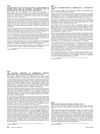 March 2005 in “Journal of The American Academy of Dermatology”
March 2005 in “Journal of The American Academy of Dermatology” Diphencyprone treatment protocols could be simplified as no harm occurred despite not fully following them.
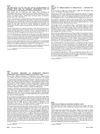 March 2005 in “Journal of The American Academy of Dermatology”
March 2005 in “Journal of The American Academy of Dermatology” Itch is a common symptom in patients with chronic venous insufficiency, often worsening with standing or sitting and occurring mostly in the evening or at night.
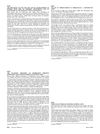 March 2005 in “Journal of The American Academy of Dermatology”
March 2005 in “Journal of The American Academy of Dermatology” Mycophenolate mofetil improved skin condition in a man with nephrogenic fibrosing dermopathy.
 November 2004 in “Medical Journal of Indonesia”
November 2004 in “Medical Journal of Indonesia” Hormonal imbalances can cause skin and hair problems in women, and treatments that block male hormones can help.
 June 2004 in “Dermatologic Surgery”
June 2004 in “Dermatologic Surgery” The single-scar technique in hair transplantation minimizes scarring and preserves hairs for future use, with proper training overcoming its perceived drawbacks.
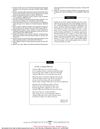 December 2002 in “Archives of Dermatology”
December 2002 in “Archives of Dermatology” The poem ends by asking for case reports on serious health issues like Telogen Effluvium.
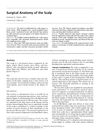 July 2002 in “Dermatologic Surgery”
July 2002 in “Dermatologic Surgery” Understanding the scalp's five-layer structure is crucial for better surgical outcomes and fewer complications.
 September 1999 in “The Journal of The British Menopause Society”
September 1999 in “The Journal of The British Menopause Society” The document concludes that skin aging in women can be caused by UV exposure and hormonal changes, and treatments like hormone replacement therapy and various skin therapies can help.
 January 1981 in “The Journal of Toxicological Sciences”
January 1981 in “The Journal of Toxicological Sciences” Hydrocortisone 17-butyrate 21-propionate ointment caused reversible side effects like skin issues, weight gain, and organ changes in dogs.
 January 1978 in “Clin-Alert”
January 1978 in “Clin-Alert” A document listed serious side effects from various drugs, including deaths and diseases, emphasizing the importance of being aware of drug side effects.
 April 1969 in “Postgraduate medicine”
April 1969 in “Postgraduate medicine” Use corticosteroid cream and triamcinolone injections for treating alopecia areata, and consider wigs and tranquilizers for support.
 April 2018 in “Journal of Investigative Dermatology”
April 2018 in “Journal of Investigative Dermatology” Hair pattern in androgenetic alopecia overlaps with scalp and bone demarcations, with distinct gene profiles affecting susceptibility.
 September 2017 in “Journal of Investigative Dermatology”
September 2017 in “Journal of Investigative Dermatology” BMPs are crucial for hair growth and their decrease by androgens leads to hair loss.
 February 2017 in “Clinical dermatology open access journal”
February 2017 in “Clinical dermatology open access journal” Men with early hair loss may have higher insulin resistance and should be checked for related health issues.
 2295 citations,
August 2012 in “The international journal of transgenderism/International journal of transgenderism”
2295 citations,
August 2012 in “The international journal of transgenderism/International journal of transgenderism” The guidelines recommend informed consent for gender-affirming treatments and stress the importance of personalized, culturally sensitive care for transgender individuals.
 1540 citations,
October 2008 in “Fertility and Sterility”
1540 citations,
October 2008 in “Fertility and Sterility” The report concludes that PCOS is mainly a condition of excess male hormones and its definition may change as new information is discovered.
 1514 citations,
December 2011 in “Fertility and sterility”
1514 citations,
December 2011 in “Fertility and sterility” Experts agree that PCOS affects women's health in complex ways, but more research is needed to understand and treat it effectively.
 1341 citations,
January 2014 in “Cardiology Research and Practice”
1341 citations,
January 2014 in “Cardiology Research and Practice” Managing metabolic syndrome needs both lifestyle changes and medical treatments.
 1113 citations,
August 1999 in “The New England Journal of Medicine”
1113 citations,
August 1999 in “The New England Journal of Medicine” Hair follicle biology advancements may lead to better hair growth disorder treatments.
 883 citations,
August 2016 in “Nature Reviews Disease Primers”
883 citations,
August 2016 in “Nature Reviews Disease Primers” Polycystic Ovary Syndrome (PCOS) is a common condition in women that can cause metabolic, reproductive, and psychological issues, and requires lifestyle changes and medication for management.
 855 citations,
June 2009 in “The Journal of Clinical Endocrinology & Metabolism”
855 citations,
June 2009 in “The Journal of Clinical Endocrinology & Metabolism” The guideline recommends mental health involvement in diagnosing gender identity disorder and outlines hormone and surgical treatment protocols, emphasizing safety, informed consent, and long-term monitoring.
 835 citations,
October 2008 in “Nature Genetics”
835 citations,
October 2008 in “Nature Genetics” Lgr5 is a marker for active, long-lasting stem cells in mouse hair follicles.
 773 citations,
August 2017 in “International Journal of Molecular Sciences”
773 citations,
August 2017 in “International Journal of Molecular Sciences” The secretions of mesenchymal stem cells could be used for healing without using the cells themselves.
 759 citations,
February 2009 in “Current Biology”
759 citations,
February 2009 in “Current Biology” Hair follicles are complex, dynamic mini-organs that help us understand cell growth, death, migration, and differentiation, as well as tissue regeneration and tumor biology.






























